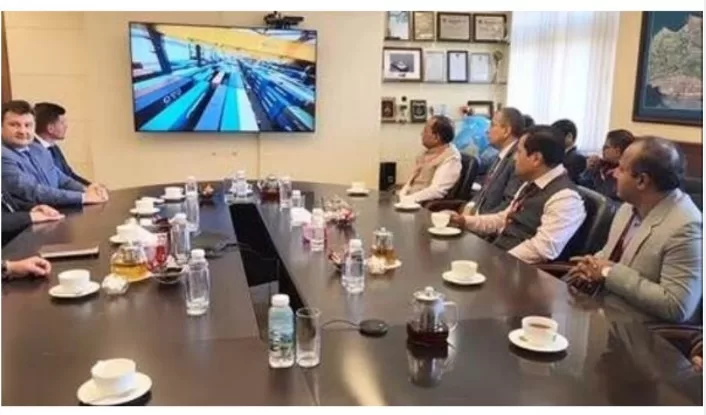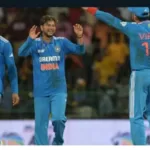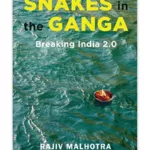Vladivostok, Russia: In a significant diplomatic development, India and Russia have embarked on a voyage to explore innovative maritime trade routes. Union Minister of Ports, Shipping and Waterways, Sarbananda Sonowal, held discussions with A.O. Chekunkov, the Minister of the Russian Federation for the Development of the Far East and the Arctic, in Vladivostok, Russia, showcasing their shared aspirations for enhanced connectivity and commerce.
The discussions encompassed the prospective use of novel transport corridors such as the Northern Sea Route (NSR) and the Eastern Maritime Corridor (EMC) between Vladivostok and Chennai. Additionally, both nations concurred on the importance of providing training for seafarers navigating polar and Arctic waters, an initiative to be undertaken at the Russian Maritime Training Institute in Vladivostok.
Mr. Sonowal emphasized the value of alternative trade routes for fostering economic synergy between India and Russia. He stated, “India is keen to establish a partnership for the development of the Northern Sea Route, recognizing its potential to augment connectivity and trade.”
Mr. Chekunkov acknowledged the potential cargo base of the NSR, encompassing coking coal, oil, LNG, and fertilizers, products that are available in abundance in the Far East and increasingly in demand in the eastern regions of India. The proposal envisages extending the project’s geographical scope beyond Primorye to include other regions, particularly the Khabarovsk Territory.
Further underscoring the strategic importance of the NSR, Mr. Chekunkov elucidated, “We are ready to visit Chennai this October on a business mission and, with the participation of leading Russian exporters, to develop mutually beneficial solutions with the Indian side for the launch of the above lines. The NSR is a global transport project. Its development can provide economic benefits to both Russia and non-regional states. For India, this is an opportunity to increase sales of shipbuilding products and gain income from participation in the general logistics business in northern latitudes.”
Eastern Maritime Corridor (EMC): The proposed maritime route connecting Chennai and Vladivostok is strategically located on the Golden Horn Bay, north of North Korea, and in proximity to Russia’s border with China. Vladivostok, Russia’s largest port on the Pacific coast, serves as a pivotal hub. Covering approximately 5,600 nautical miles, the Chennai-Vladivostok sea route is designed to facilitate swift transportation of coking coal.
Northern Sea Route (NSR): Running along Russia’s northern coastline, the NSR represents the shortest shipping route between East Asia and Europe, covering a distance of 13,000 km, in contrast to the 21,000 km journey via the Suez Canal. Recent shifts in Arctic ice patterns have revealed new opportunities along this route.
This collaborative endeavor signals a promising era of maritime cooperation between India and Russia, promising mutual economic advantages and opening new avenues for global trade.







